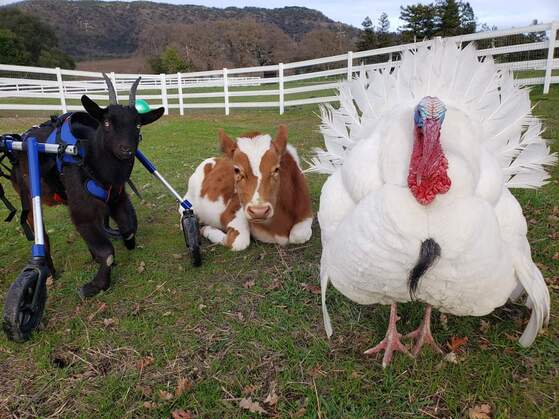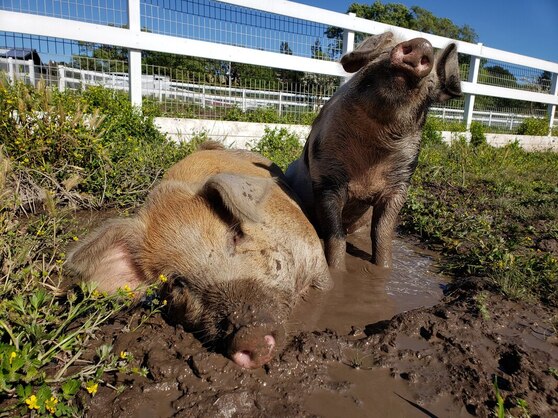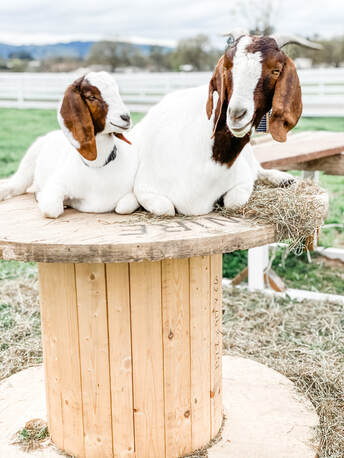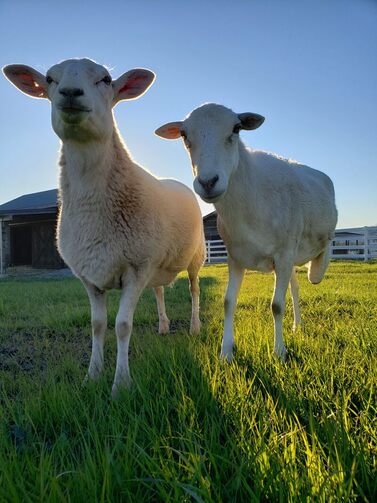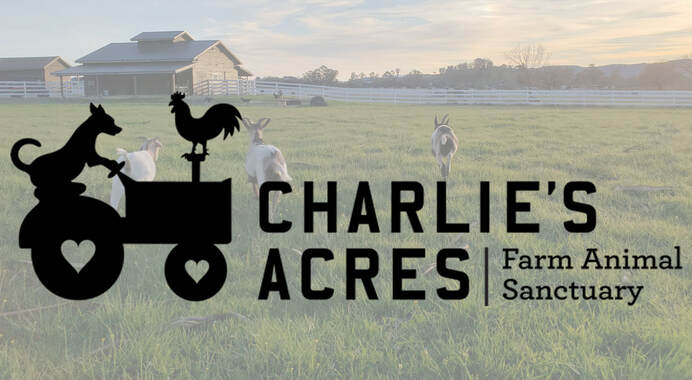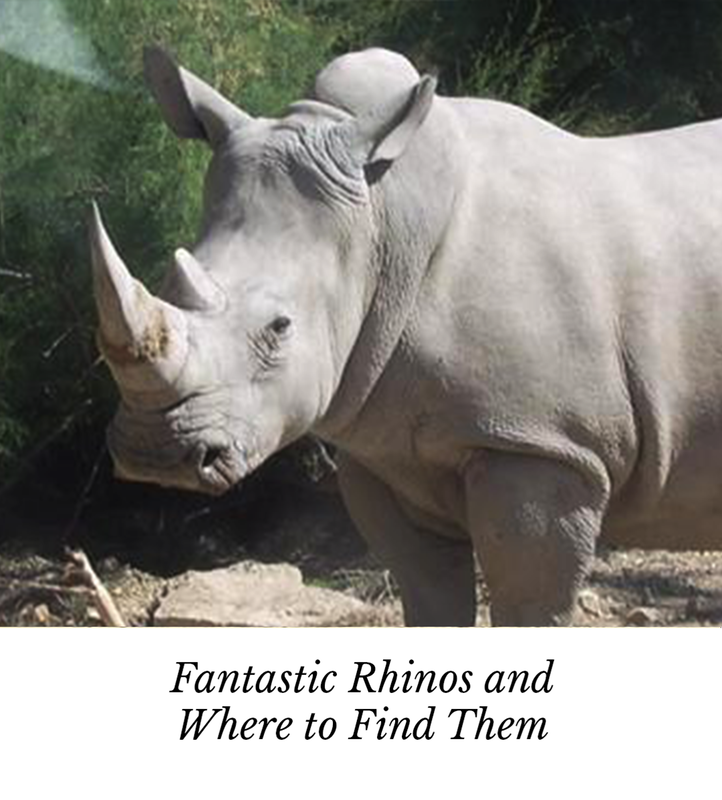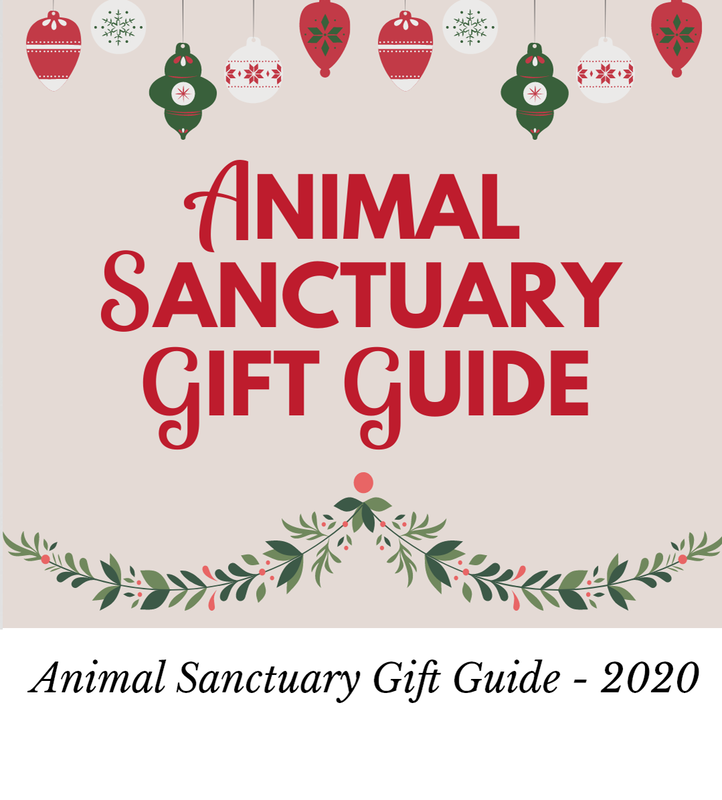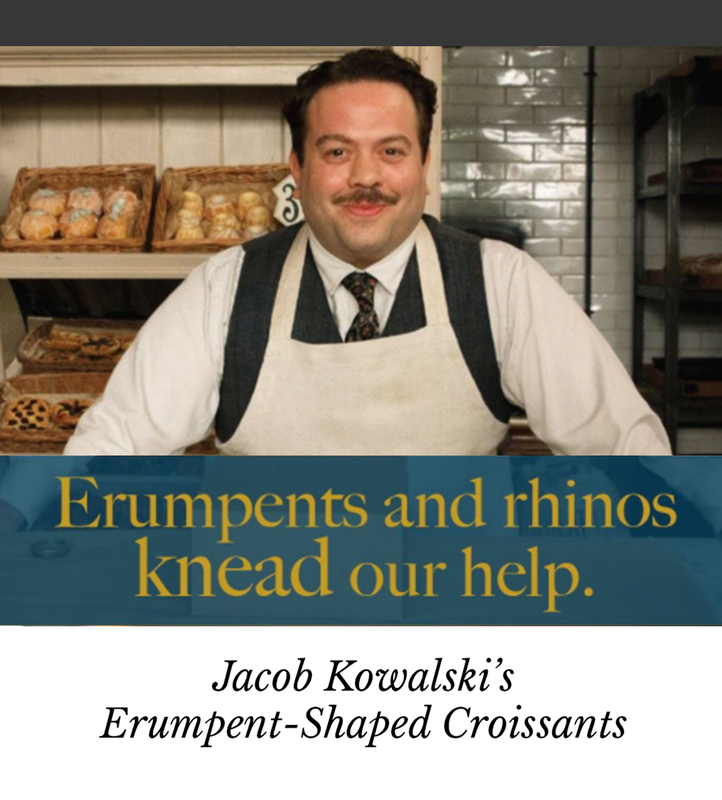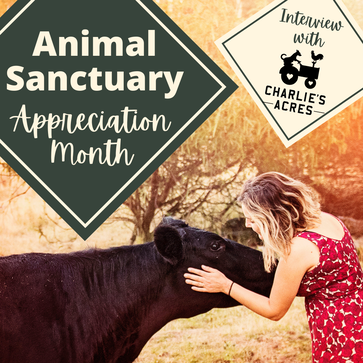 December doesn’t just mark the start of winter and the holiday season. Beyond the solstice and the snowfall, this cozy month is all about togetherness, generosity, and love, all of which happen to be hallmarks of accredited vegan sanctuaries that rescue vulnerable animals from abusive, neglectful, and potentially deadly situations. December is Animal Sanctuary Appreciation Month. According to the USDA Census of Agriculture, 99% of farmed animals in the US live on factory farms. Those figures include: - 9 billion chickens killed for their meat - 300 million chickens used in the egg industry - 240 million turkeys - and over 120 million pigs This isn’t even to mention the cows, goats, sheep, and other animals exploited and killed for their meat, skin, and milk. Then there are the petting zoos and roadside attractions scattered throughout the US. Often billed as wholesome entertainment for children (they’re alternatively known as “children’s farms”), these attractions feature sheep, deer, ducks, rabbits, pigs, cows, miniature ponies, donkeys, and even llamas. These animals are often confined to cramped wire pens or concrete lots—a far cry from the natural environments they would thrive in. Farmed animals held in captivity in petting zoos are also subject to chronic fear, stress, neglect, and abuse. They’re often deprived of proper medical care, water, and healthy nutrition. They tend to be shut up in small spaces with limited shelter from the elements and rarely get any kind of veterinary attention for any injuries or illnesses. But it’s not just their physical needs that aren’t met. Their social needs are also neglected. These sensitive and intelligent animals are often deprived of other animals’ company and cannot engage in their natural behaviors. Farmed animals in petting zoos are also unable to get away from the grasping, poking, and prodding hands of the loud crowds of strangers who flood these attractions day in and day out. Battling isolation, stress, boredom, disorientation, and potential injuries and illnesses, these “lucky” animals more often than not end up going to the same slaughterhouses and meet the same violent ends as their factory-farmed counterparts. But there is still hope and refuge for farmed animals. Enter vegan farmed-animal sanctuaries and rescues! Photos courtesy of Charlie's Acres Animal sanctuaries play a vital role in rescuing and rehabilitating thousands of formerly abused and neglected farmed and companion animals. Often tirelessly run by devoted animal lovers and dedicated and selfless volunteers, sanctuaries allow farmed animals the opportunity to live out their lives in peace in natural environments. In sanctuaries' safety and freedom, rescued farmed animals are finally cut loose from the yoke of exploitation placed upon them by the animal agriculture and animal entertainment industries. In sanctuaries, animals who were formerly factory-farmed or held captive in petting zoos or roadside attractions are seen for who they are—living, loving, feeling, and thinking beings—not for what they can do for humans. In honor of Animal Sanctuary Appreciation Month, we talked to one of our favorite vegan farmed animal sanctuaries, Charlie’s Acres, about how essential sanctuaries are for caring and advocating for all of the magical and non-magical creatures we love so dearly. (PS: Many sanctuaries, like Charlie’s Acres, are beginning to offer virtual tours! These virtual tours allow you to meet the incredibly brave, loving, and resilient residents of countless sanctuaries globally, all without needing to grab your broom or a handful of Floo powder or having to risk apparition during a pandemic.)
The Protego Foundation: Are visitors a big part of Charlie's Acres? Kaleigh Rhoads: Yes, having people visit the sanctuary has been a big part of our mission from the beginning. In addition to providing a forever home for rescued animals, our goal is education. We offer guided tours, which gives us a chance to share the stories of these very underrepresented animals while visitors interact with them. PF: What’s it like to visit? KR: When people hear what our animal residents have been through and make an in-person connection with them, it can start a conversation about the ways that we use animals in our daily lives. We hope to make people reconsider their eating choices. PF: How have you seen tours of Charlie’s Acres impact visitors? KR: One of the most impactful things about visiting is seeing how beautiful these animals’ lives could be. When we only see cows standing crowded on a dirt feedlot, it’s easy to think of that as their natural setting. But when you see cows grooming each other, frolicking in a big grassy field, or coming over for a chin scratch, you realize that this is how all cows should live. PF: When Charlie’s Acres tours resume, why would you encourage animal lovers to visit the sanctuary physically? KR: Our animal residents have stories to share and personalities to show off. It can feel really rejuvenating to get to spend time with animals who demonstrate such resilience and hope. I would encourage any animal lover to visit [and for] vegans to bring their non-vegan families and friends for a visit. PF: Do you have any favorite visitor stories from the times you’ve run tours of Charlie’s Acres? KR: One of my absolute favorite responses to a tour is when I introduced two 11-year-old girls to our turkeys. I told them to sit on a straw bale to make the animals more comfortable. A turkey named Mei Li climbed up on the girls’ lap and snuggled in while they both pet her feathers. Mei Li closed her eyes and started to fall asleep, and one of the girls said, “I’m never going to eat another turkey again.” Her mom emailed me six months later to say that this girl had been a vegetarian ever since, and the whole family was eating more plant-based.
PF: Tell us about the goat yoga Charlie’s Acres offers. What sets the sanctuary’s goat yoga apart from other goat yoga classes? KR: It’s mostly dairy farms that host goat yoga classes because they have a constant influx of babies, [who] are cute and love to jump on people’s backs while they do yoga. Our goat yoga at Charlie’s Acres looks a bit different. It’s all with friendly, gentle adult goats (or sometimes sheep) so they’re not jumping on your back. It’s fun for the humans who get a chance to exercise in a beautiful outdoor setting while goats come up and distract you by asking to be pet. It’s nice for the animals too, especially some of the more nervous ones, because they can come up and investigate humans while the humans are in low vulnerable positions, so it makes the animals feel really comfortable. PF: You're personally leading some virtual tours of Charlie's Acres. What has that been like? KR: I was so nervous when we launched virtual tours. I wasn’t sure if the tour would translate to a virtual experience well, but it has turned out to be incredible. We really focus on storytelling, which is similar to our in-person tours, but since it’s just a staff member and an iPad out there, some of the shyer animals allow us to get a lot closer. So viewers are still getting a really intimate experience. We’ve gotten really positive feedback and will definitely be continuing virtual tours permanently. PF: Does taking a tour of sanctuaries like Charlie’s Acres truly make a difference for the animals and visitors? KR: Faunalytics recently published a study on the impact that visiting animal sanctuaries has on diet change. They found that these tours lead to significant changes in people’s dietary intentions, and that direct interactions with the animals were memorable and impactful. We also send all of our visitors a survey after their tour so we can collect data on how the tour might have impacted them. The majority of visitors reply that their visit to Charlie’s Acres made them reconsider their eating habits. I think that hearing about the terrible truth of factory farming is a lot more palatable and even inspires hope when you’re hearing it while petting an animal who was saved from such a fate. Photo courtesy of Charlie's Acres You can follow all the adventures of Charlie’s Acres animal residents and their human caretakers on their Instagram, Facebook, and website. And be sure to register for a virtual tour of the sanctuary on their website! Are you planning on virtually touring a farmed animal sanctuary or rescue this month or in the new year? Do you have any favorite memories from any recent sanctuary tours? Please share them with us in the comments or tag us on social media! We’d love to see and hear all about your animal sanctuary adventures! Written by Victoria Tomis ACCIO MORE ARTICLES:
0 Comments
Your comment will be posted after it is approved.
Leave a Reply. |
The Protego Foundation's work is made possible, in part, thanks to Tylor Starr.
The Protego Foundation and its activities are not licensed by, sponsored by or associated with Warner Bros., J.K. Rowling, or their affiliates. 'Wizarding World,' 'Harry Potter,' ‘Fantastic Beasts' and all related names, characters and indicia are trademarks of and © Warner Bros. - Harry Potter publishing rights © J.K. Rowling.
FEIN 83-3531129
The Protego Foundation and its activities are not licensed by, sponsored by or associated with Warner Bros., J.K. Rowling, or their affiliates. 'Wizarding World,' 'Harry Potter,' ‘Fantastic Beasts' and all related names, characters and indicia are trademarks of and © Warner Bros. - Harry Potter publishing rights © J.K. Rowling.
FEIN 83-3531129

